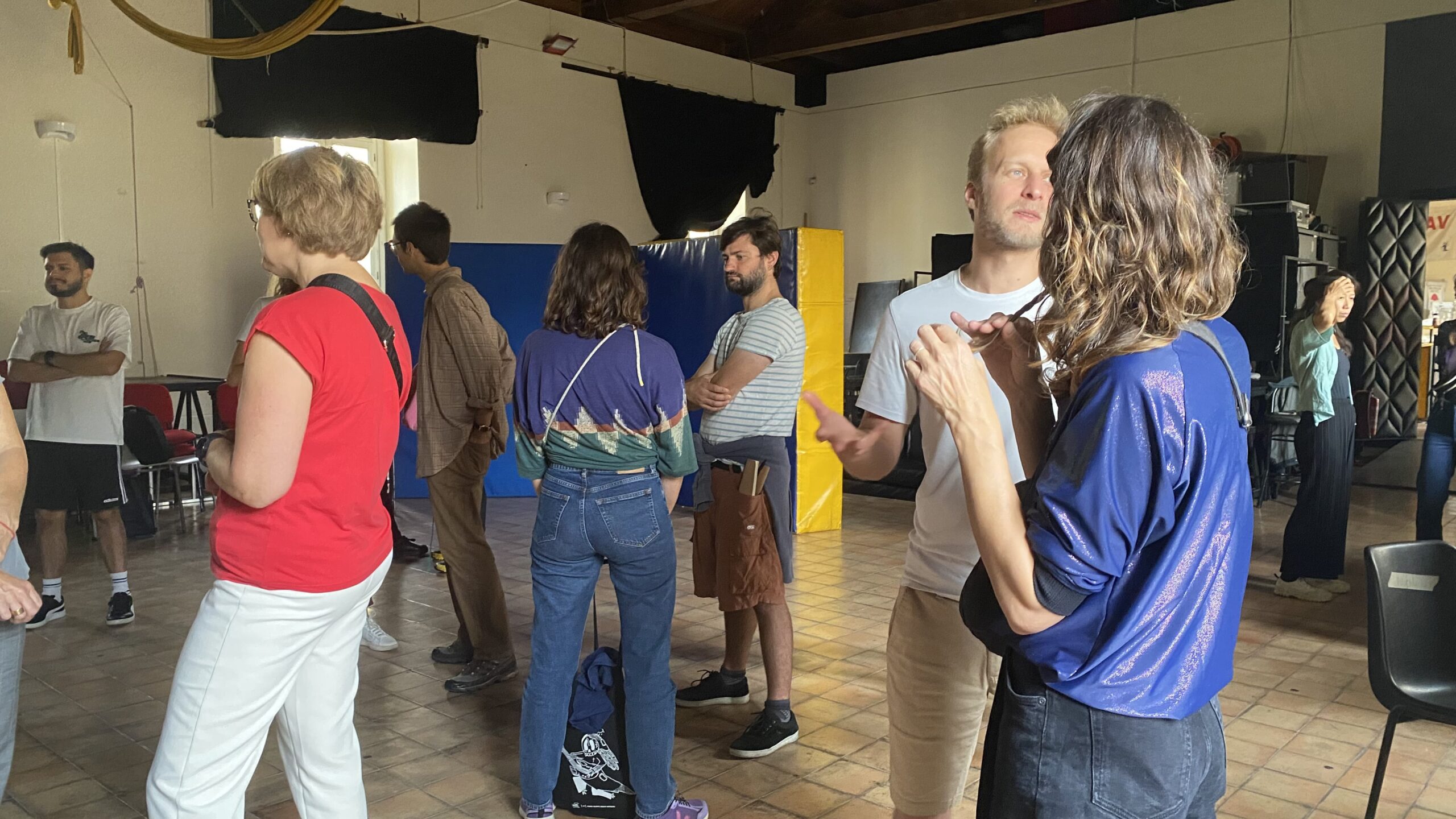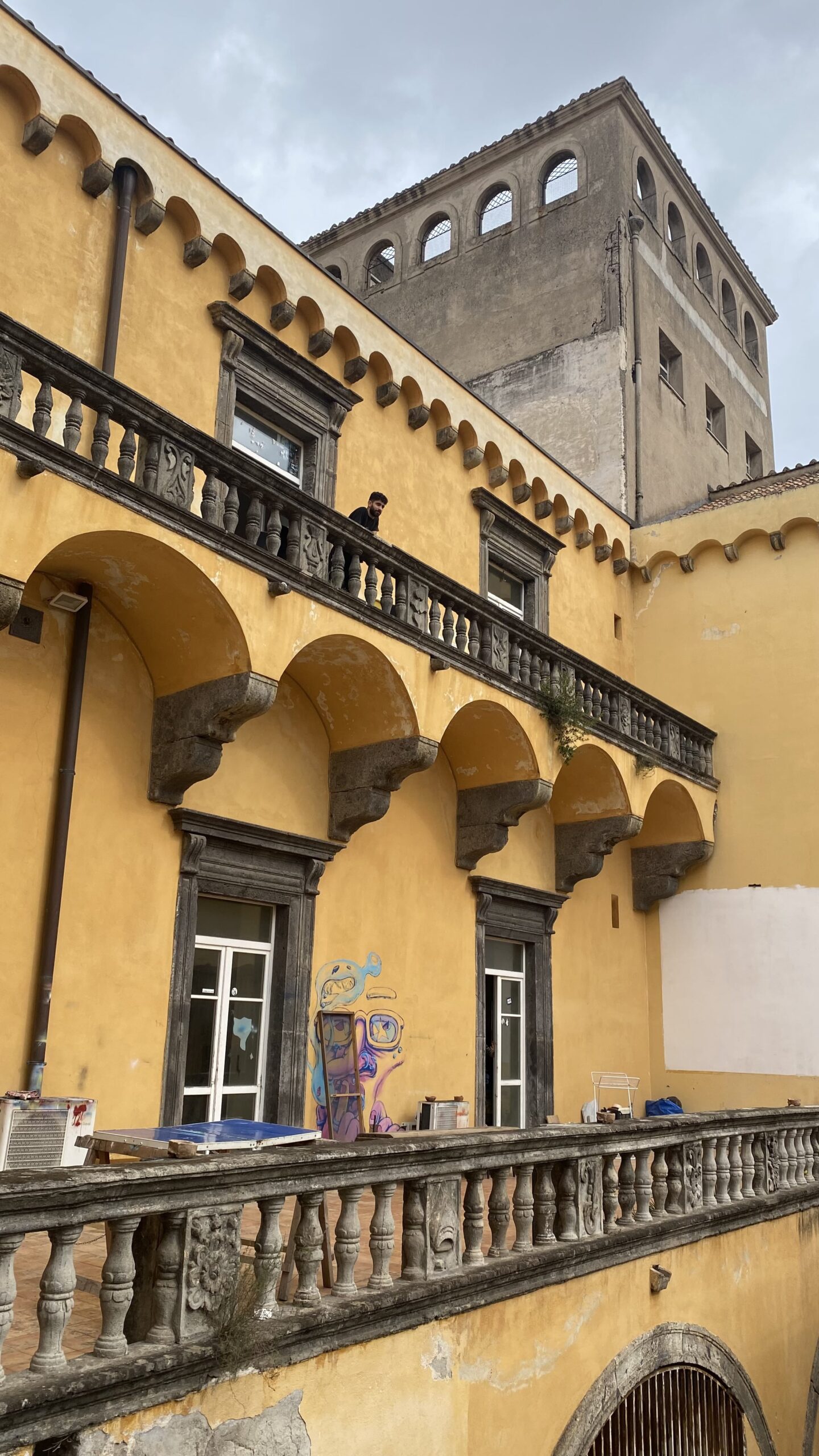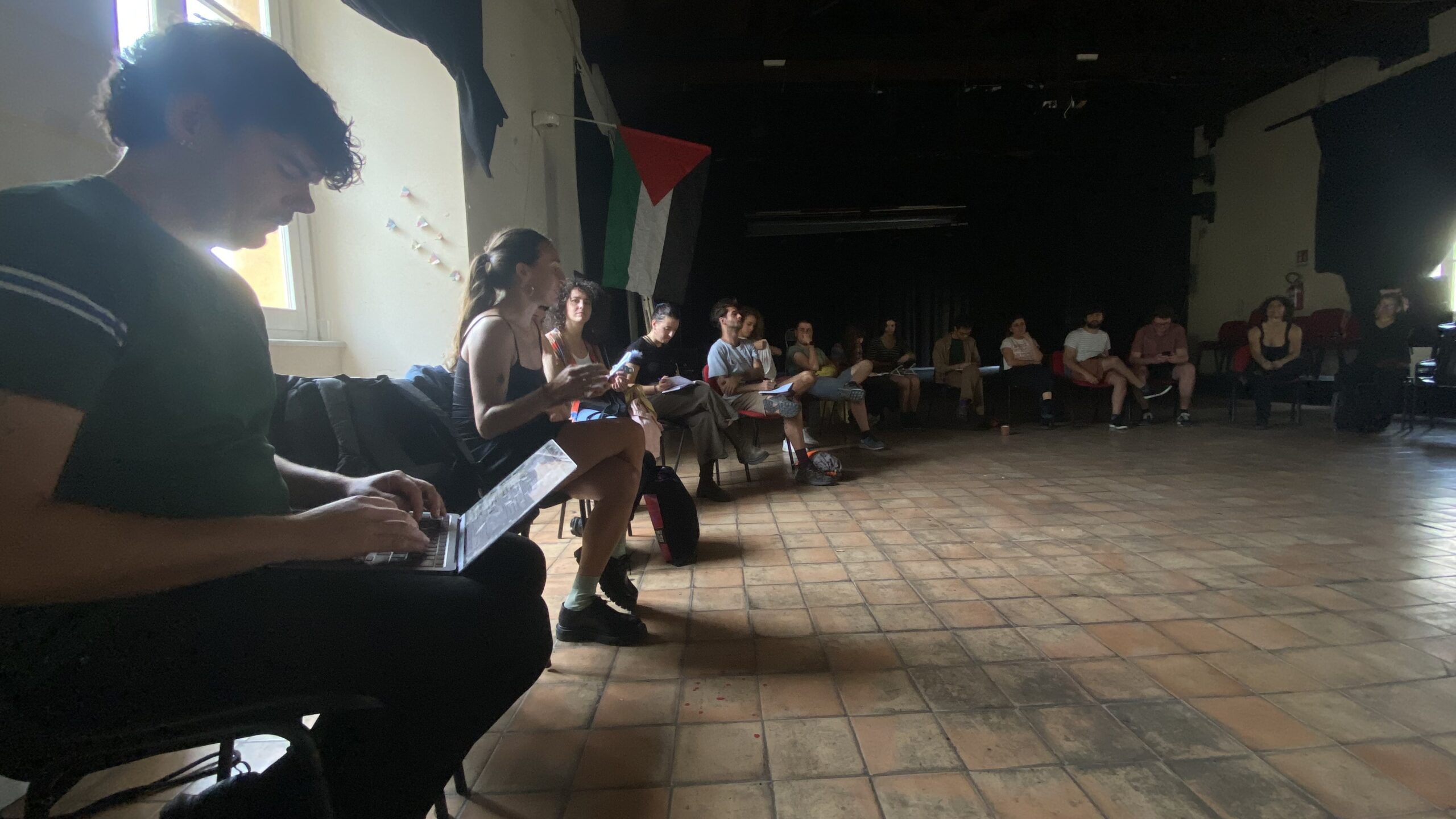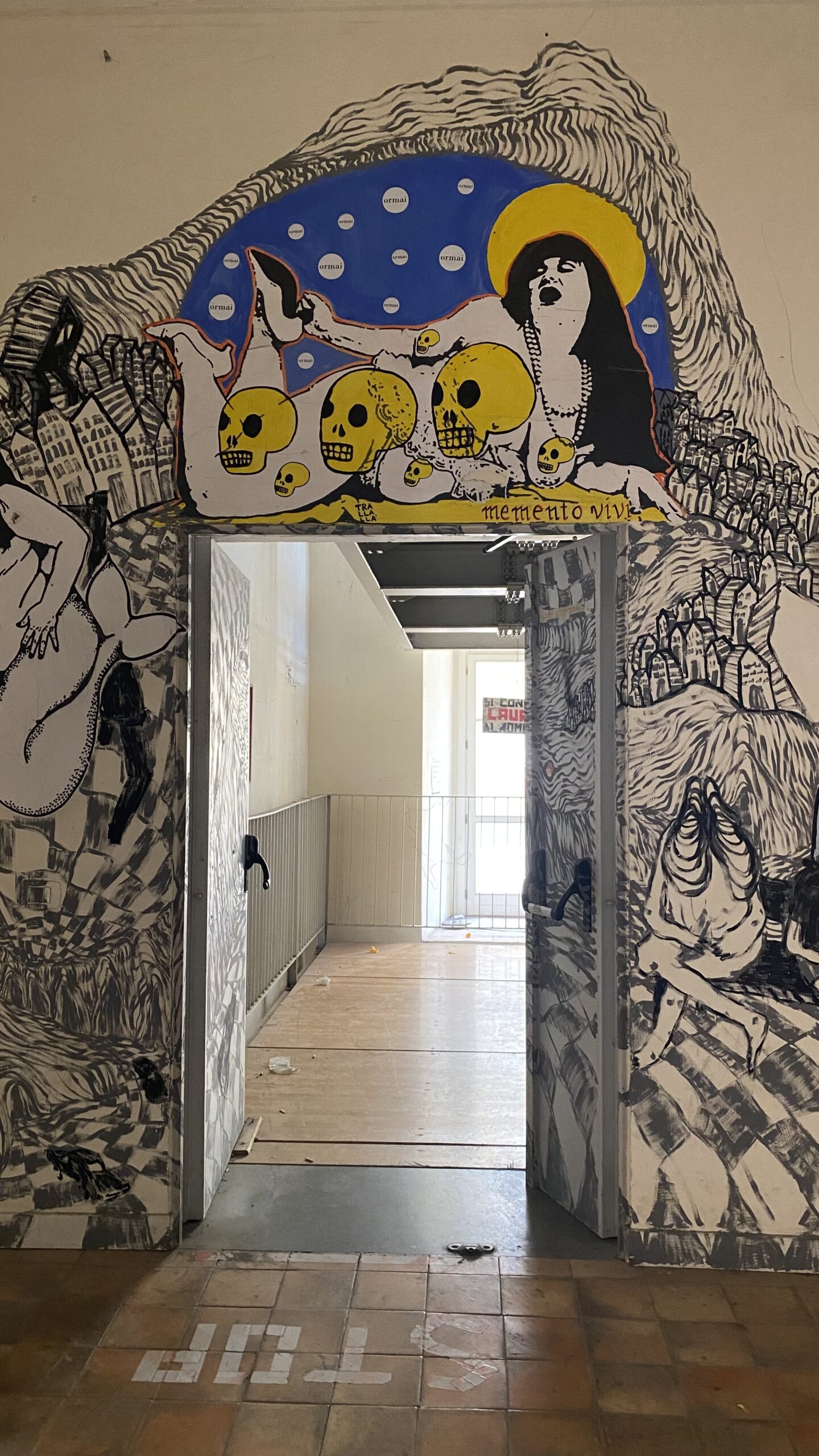Learning by being there: immersion in the Commons of Naples
In April 2024, a group of students, educators, and researchers from France, Belgium, Italy, and Latin America gathered in Naples for a three-day immersive session hosted by L’Asilo, a self-managed space recognised as a civic commons. The experience was part of BASICC, a European Erasmus+ project focused on new training pathways related to the activation and governance of common spaces.
The aim was to explore whether the Common Spaces University Diploma (DU Espaces Communs)—developed in France—could be translated into the Italian context. But what participants encountered in Naples challenged not only their assumptions about commoning, but also about how learning itself takes place.
The immersive session didn’t rely on lectures or classrooms. Learning happened through presence, encounter, and situated experience.
The group visited several commons across Naples (Lo Scugnizzo Liberato, Ex OPG, Il Giardino Liberato, L’Asilo) each with its own story, governance model, and mix of political and cultural activity.
Participants observed how commons in Naples are shaped by everyday practice rather than formal procedures. They learned how communities self-organise to provide housing, culture, and care - drawing on diverse skills, from barbers and cooks to theatre technicians and legal scholars. What emerged was an embodied understanding of how knowledge is generated, shared, and negotiated within lived spaces.
At times, this approach sparked disorientation. Some students arrived without a strong sense of the local political context, and had to adapt quickly to a learning environment that was informal, multilingual, and often emotionally charged. But these moments of friction became entry points for deeper reflection.




The Fanzine as a Learning Tool
A central part of the experience was the creation of a collective fanzine, which served as both documentation and a shared pedagogical process. Participants were invited to contribute not just summaries or photos, but interviews, sketches, field notes, and personal reflections.
This tool allowed different voices to coexist and created space for critical dialogue between cultural models. Where some participants came with a structured, institutionally supported approach to civic engagement, the commons in Naples introduced a more improvised, necessity-driven model rooted in local histories of resistance and care.
The fanzine captured this encounter—not just what happened, but how it was processed, interpreted, and sometimes misunderstood. It became a map of tensions, translations, and the slow work of learning together.
From Observation to Reflection
The session raised important questions: What kinds of skills are needed to care for a common space? Can informal know-how be recognised without losing its meaning? What happens when a pedagogical model meets a very different political reality?
Rather than offering simple answers, the Naples experience created space for students to explore these questions from within. They grappled with the idea of governance without formal hierarchies, with legal and economic grey zones, and with the discomfort of confronting models that didn’t match their own.
Yet it was precisely in this tension that much of the learning took place. The students left not only with new tools and contacts, but with a more nuanced understanding of what “commons” mean in different cultural and political contexts—and of the limits of applying a single model across them.
Fansilo: a fanzine directly from an immersive session
